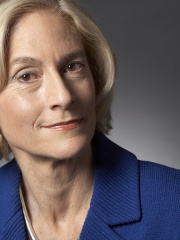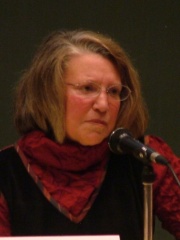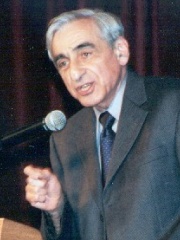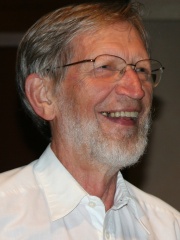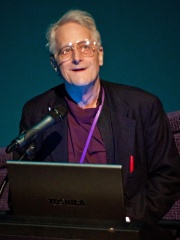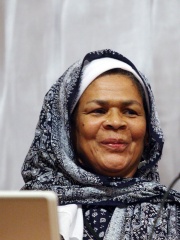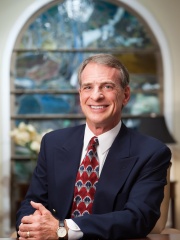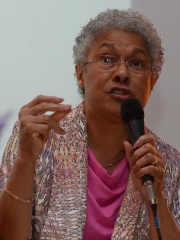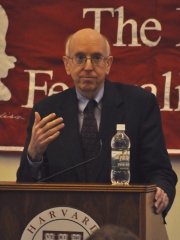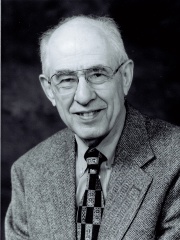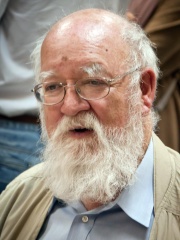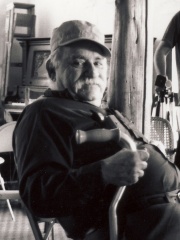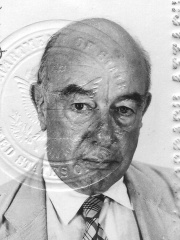
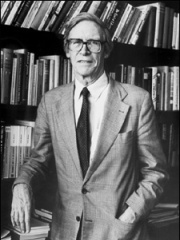
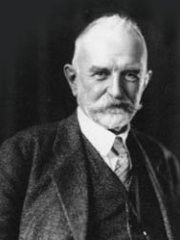
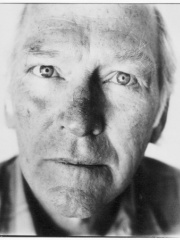
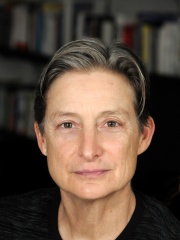
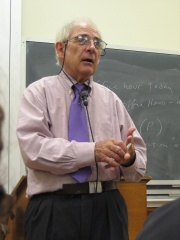
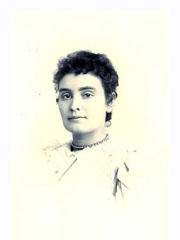

The Most Famous
PHILOSOPHERS from United States
This page contains a list of the greatest American Philosophers. The pantheon dataset contains 1,267 Philosophers, 97 of which were born in United States. This makes United States the birth place of the 4th most number of Philosophers behind France, and United Kingdom.
Top 10
The following people are considered by Pantheon to be the top 10 most legendary American Philosophers of all time. This list of famous American Philosophers is sorted by HPI (Historical Popularity Index), a metric that aggregates information on a biography's online popularity. Visit the rankings page to view the entire list of American Philosophers.

1. Willard Van Orman Quine (1908 - 2000)
With an HPI of 77.28, Willard Van Orman Quine is the most famous American Philosopher. His biography has been translated into 50 different languages on wikipedia.
Willard Van Orman Quine ( KWYNE; known to his friends as "Van"; June 25, 1908 – December 25, 2000) was an American philosopher and logician in the analytic tradition, recognized as "one of the most influential philosophers of the twentieth century". He was the Edgar Pierce Chair of Philosophy at Harvard University from 1956 to 1978. Quine was a teacher of logic and set theory. He was famous for his position that first-order logic is the only kind worthy of the name, and developed his own system of mathematics and set theory, known as New Foundations. In the philosophy of mathematics, he and his Harvard colleague Hilary Putnam developed the Quine–Putnam indispensability argument, an argument for the reality of mathematical entities. He was the main proponent of the view that philosophy is not conceptual analysis, but continuous with science; it is the abstract branch of the empirical sciences. This led to his famous quip that "philosophy of science is philosophy enough". He led a "systematic attempt to understand science from within the resources of science itself" and developed an influential naturalized epistemology that tried to provide "an improved scientific explanation of how we have developed elaborate scientific theories on the basis of meager sensory input". He also advocated holism in science, known as the Duhem–Quine thesis. His major writings include the papers "On What There Is" (1948), which elucidated Bertrand Russell's theory of descriptions and contains Quine's famous dictum of ontological commitment, "To be is to be the value of a variable", and "Two Dogmas of Empiricism" (1951), which attacked the traditional analytic-synthetic distinction and reductionism, undermining the then-popular logical positivism, advocating instead a form of semantic holism and ontological relativity. They also include the books The Web of Belief (1970), which advocates a kind of coherentism, and Word and Object (1960), which further developed these positions and introduced Quine's famous indeterminacy of translation thesis, advocating a behaviorist theory of meaning.

2. John Rawls (1921 - 2002)
With an HPI of 74.33, John Rawls is the 2nd most famous American Philosopher. His biography has been translated into 66 different languages.
John Bordley Rawls (; February 21, 1921 – November 24, 2002) was an American moral, legal and political philosopher in the modern liberal tradition. Rawls has been described as one of the most influential political philosophers of the 20th century. In 1990, Will Kymlicka wrote in his introduction to the field that "it is generally accepted that the recent rebirth of normative political philosophy began with the publication of John Rawls's A Theory of Justice in 1971". Rawls's theory of "justice as fairness" recommends equal basic liberties, equality of opportunity, and facilitating the maximum benefit to the least advantaged members of society in any case where inequalities may occur. Rawls's argument for these principles of social justice uses a thought experiment called the "original position", in which people deliberately select what kind of society they would choose to live in if they did not know which social position they would personally occupy. In his later work Political Liberalism (1993), John Rawls addressed the question of how political power can be exercised legitimately in a society where citizens hold diverse and often conflicting moral, religious, and philosophical points of view. Rawls received both the Schock Prize for Logic and Philosophy and the National Humanities Medal in 1999. The latter was presented by President Bill Clinton in recognition of how his works "revived the disciplines of political and ethical philosophy with his argument that a society in which the most fortunate help the least fortunate is not only a moral society but a logical one". Among contemporary political philosophers, Rawls is frequently cited by the courts of law in the United States and Canada and referred to by practicing politicians in the United States and the United Kingdom. In a 2008 national survey of political theorists, based on 1,086 responses from professors at accredited, four-year colleges and universities in the United States, Rawls was voted first on the list of "Scholars Who Have Had the Greatest Impact on Political Theory in the Past 20 Years".

3. George Herbert Mead (1863 - 1931)
With an HPI of 72.41, George Herbert Mead is the 3rd most famous American Philosopher. His biography has been translated into 44 different languages.
George Herbert Mead (February 27, 1863 – April 26, 1931) was an American philosopher, sociologist, and psychologist, primarily affiliated with the University of Chicago. He was one of the key figures in the development of pragmatism. He is regarded as one of the founders of symbolic interactionism, and was an important influence on what has come to be referred to as the Chicago School of Sociology.

4. Donald Davidson (1917 - 2003)
With an HPI of 72.02, Donald Davidson is the 4th most famous American Philosopher. His biography has been translated into 34 different languages.
Donald Herbert Davidson (March 6, 1917 – August 30, 2003) was an American philosopher. He served as Slusser Professor of Philosophy at the University of California, Berkeley, from 1981 to 2003 after having also held teaching appointments at Stanford University, Rockefeller University, Princeton University, and the University of Chicago. Davidson was known for his charismatic personality and difficult writing style, as well as the systematic nature of his philosophy. His work exerted considerable influence in many areas of philosophy from the 1960s onward, particularly in philosophy of mind, philosophy of language, and action theory. While Davidson was an analytic philosopher, with most of his influence lying in that tradition, his work has attracted attention in continental philosophy as well, particularly in literary theory and related areas.
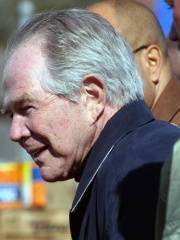
5. Pat Robertson (1930 - 2023)
With an HPI of 71.65, Pat Robertson is the 5th most famous American Philosopher. His biography has been translated into 30 different languages.
Marion Gordon "Pat" Robertson (March 22, 1930 – June 8, 2023) was an American media mogul, televangelist, political commentator, presidential candidate, and charismatic minister. Robertson advocated a conservative Christian ideology and was known for his involvement in Republican Party politics. He was associated with the Charismatic movement within Protestant evangelicalism. He served as head of Regent University and of the Christian Broadcasting Network (CBN). Robertson's career spanned over five decades, and was the founder of several organizations, including CBN, Regent University, Operation Blessing International Relief and Development Corporation, the International Family Entertainment Inc. (ABC Family Channel/Freeform), the American Center for Law & Justice (ACLJ), the Founders Inn and Conference Center, and the Christian Coalition. Robertson was also a best-selling author and the host of The 700 Club, a Christian News and TV program broadcast live weekdays on Freeform (formerly ABC Family) from CBN studios, as well as on channels throughout the United States, and on CBN network affiliates worldwide. Robertson retired from The 700 Club in October 2021. The son of U.S. Senator A. Willis Robertson, Robertson was a Southern Baptist and was active as an ordained minister with that denomination for many years, but held to a charismatic theology not traditionally common among Southern Baptists. He unsuccessfully campaigned to become the Republican nominee in the 1988 presidential election. As a result of his seeking political office, he never again served in an official role for any church. Robertson remained a controversial figure, especially known for evangelical religiocentrism. While he became a recognized and influential public voice for conservative Christianity in the U.S. and around the world, his opposition to various progressive causes, including LGBTQ rights, feminism, and the right to abortion, was frequently criticized.

6. Judith Butler (b. 1956)
With an HPI of 69.72, Judith Butler is the 6th most famous American Philosopher. Her biography has been translated into 69 different languages.
Judith Pamela Butler (born February 24, 1956) is an American feminist philosopher and gender studies scholar whose work has influenced political philosophy, ethics, and the fields of third-wave feminism, queer theory, and literary theory. In 1993, Butler joined the faculty in the Department of Rhetoric at the University of California, Berkeley, where they became the Maxine Elliot Professor in the Department of Comparative Literature and the Program in Critical Theory in 1998. They also hold the Hannah Arendt Chair at the European Graduate School (EGS). Butler is best known for the books Gender Trouble: Feminism and the Subversion of Identity (1990) and Bodies That Matter: On the Discursive Limits of Sex (1993), in which they challenge conventional, heteronormative notions of gender and develop their theory of gender performativity. This theory has had a major influence on feminist and queer scholarship. Butler has spoken on many contemporary political questions, including Israeli politics and in support of LGBTQ rights.

7. John Searle (1932 - 2025)
With an HPI of 69.67, John Searle is the 7th most famous American Philosopher. His biography has been translated into 43 different languages.
John R. Searle ( ; July 31, 1932 – September 17, 2025) was an American philosopher widely noted for contributions to the philosophy of language, philosophy of mind, and social philosophy. He began teaching at the University of California, Berkeley, in 1959 and was Willis S. and Marion Slusser Professor Emeritus of the Philosophy of Mind and Language and Professor of the Graduate School until June 2019, when his status as professor emeritus was revoked because he was found to have violated the university's sexual harassment policies. As an undergraduate at the University of Wisconsin–Madison, Searle was secretary of "Students against Joseph McCarthy". He received all his university degrees, BA, MA, and DPhil, from the University of Oxford, where he held his first faculty positions. Later, at UC Berkeley, he became the first tenured professor to join the 1964–1965 Free Speech Movement. In the late 1980s, Searle challenged the restrictions of Berkeley's 1980 rent stabilization ordinance. Following what came to be known as the California Supreme Court's "Searle Decision" of 1990, Berkeley changed its rent control policy, leading to large rent increases between 1991 and 1994. In 2000, Searle received the Jean Nicod Prize; in 2004, the National Humanities Medal; and in 2006, the Mind & Brain Prize. In 2010 he was elected to the American Philosophical Society. Searle's early work on speech acts, influenced by J. L. Austin and Ludwig Wittgenstein, helped establish his reputation. Perhaps his most famous philosophical contribution is the "Chinese room" argument, which attempts to refute the thesis of "strong" artificial intelligence.

8. Anne Sullivan (1866 - 1936)
With an HPI of 69.47, Anne Sullivan is the 8th most famous American Philosopher. Her biography has been translated into 45 different languages.
Anne Sullivan Macy (born as Johanna Mansfield Sullivan; April 14, 1866 – October 20, 1936) was an American teacher best known for being the instructor and lifelong companion of Helen Keller. At the age of five, Sullivan contracted trachoma which left her partially blind and without reading or writing skills. She received her education as a student of the Perkins School for the Blind. Soon after graduation at age 20, she became a teacher to Keller.

9. Robert Nozick (1938 - 2002)
With an HPI of 69.33, Robert Nozick is the 9th most famous American Philosopher. His biography has been translated into 49 different languages.
Robert Nozick (; November 16, 1938 – January 23, 2002) was an American philosopher. He held the Joseph Pellegrino University Professorship at Harvard University, and was president of the American Philosophical Association. He is best known for his book Anarchy, State, and Utopia (1974), a libertarian answer to John Rawls' A Theory of Justice (1971), in which Nozick proposes his minimal state as the only justifiable form of government. His later work Philosophical Explanations (1981) advanced notable epistemological claims, namely his counterfactual theory of knowledge. It won Phi Beta Kappa society's Ralph Waldo Emerson Award the following year. Nozick's other work involved ethics, decision theory, philosophy of mind, metaphysics and epistemology. His final work before his death, Invariances (2001), introduced his theory of evolutionary cosmology, by which he argues invariances, and hence objectivity itself, emerged through evolution across possible worlds.
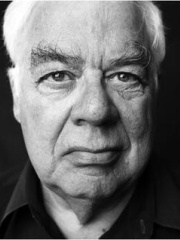
10. Richard Rorty (1931 - 2007)
With an HPI of 68.78, Richard Rorty is the 10th most famous American Philosopher. His biography has been translated into 43 different languages.
Richard McKay Rorty (October 4, 1931 – June 8, 2007) was an American philosopher, historian of ideas, and public intellectual. Educated at the University of Chicago and Yale University, Rorty's academic career included appointments as the Stuart Professor of Philosophy at Princeton University, the Kenan Professor of Humanities at the University of Virginia, and a professor of comparative literature at Stanford University. Among his most influential books are Philosophy and the Mirror of Nature (1979), Consequences of Pragmatism (1982), and Contingency, Irony, and Solidarity (1989). Rorty rejected the long-held idea that correct internal representations of objects in the outside world are a necessary prerequisite for knowledge. Rorty argued instead that knowledge is an internal and linguistic affair; knowledge relates only to our own language. Rorty argues that language is made up of vocabularies that are temporary and historical, and concludes that "since vocabularies are made by human beings, so are truths". The acceptance of the preceding arguments leads to what Rorty calls "ironism"; a state of mind where people are completely aware that their knowledge is dependent on their time and place in history, and are therefore somewhat detached from their own beliefs. However, Rorty also argues that "a belief can still regulate action, can still be thought worth dying for, among people who are quite aware that this belief is caused by nothing deeper than contingent historical circumstance".
People
Pantheon has 97 people classified as American philosophers born between 1703 and 1969. Of these 97, 29 (29.90%) of them are still alive today. The most famous living American philosophers include Judith Butler, Michael J. Sandel, and Martha Nussbaum. The most famous deceased American philosophers include Willard Van Orman Quine, John Rawls, and George Herbert Mead. As of April 2024, 4 new American philosophers have been added to Pantheon including Mary Kay Letourneau, Joseph Overton, and Graham Harman.
Living American Philosophers
Go to all RankingsJudith Butler
1956 - Present
HPI: 69.72
Michael J. Sandel
1953 - Present
HPI: 67.59
Martha Nussbaum
1947 - Present
HPI: 67.31
Nancy Fraser
1947 - Present
HPI: 64.98
Michael Walzer
1935 - Present
HPI: 63.81
Alvin Plantinga
1932 - Present
HPI: 62.87
Ted Nelson
1937 - Present
HPI: 60.71
Susan George
1934 - Present
HPI: 57.74
Amina Wadud
1952 - Present
HPI: 57.53
William Lane Craig
1949 - Present
HPI: 56.48
Patricia Hill Collins
1948 - Present
HPI: 55.24
Richard Posner
1939 - Present
HPI: 54.89
Deceased American Philosophers
Go to all RankingsWillard Van Orman Quine
1908 - 2000
HPI: 77.28
John Rawls
1921 - 2002
HPI: 74.33
George Herbert Mead
1863 - 1931
HPI: 72.41
Donald Davidson
1917 - 2003
HPI: 72.02
Pat Robertson
1930 - 2023
HPI: 71.65
John Searle
1932 - 2025
HPI: 69.67
Anne Sullivan
1866 - 1936
HPI: 69.47
Robert Nozick
1938 - 2002
HPI: 69.33
Richard Rorty
1931 - 2007
HPI: 68.78
Hilary Putnam
1926 - 2016
HPI: 67.99
Daniel Dennett
1942 - 2024
HPI: 67.49
Murray Bookchin
1921 - 2006
HPI: 67.17
Newly Added American Philosophers (2025)
Go to all RankingsMary Kay Letourneau
1962 - 2020
HPI: 51.97
Joseph Overton
1960 - 2003
HPI: 48.43
Graham Harman
1968 - Present
HPI: 47.89
David Bentley Hart
1965 - Present
HPI: 38.92
Overlapping Lives
Which Philosophers were alive at the same time? This visualization shows the lifespans of the 25 most globally memorable Philosophers since 1700.


